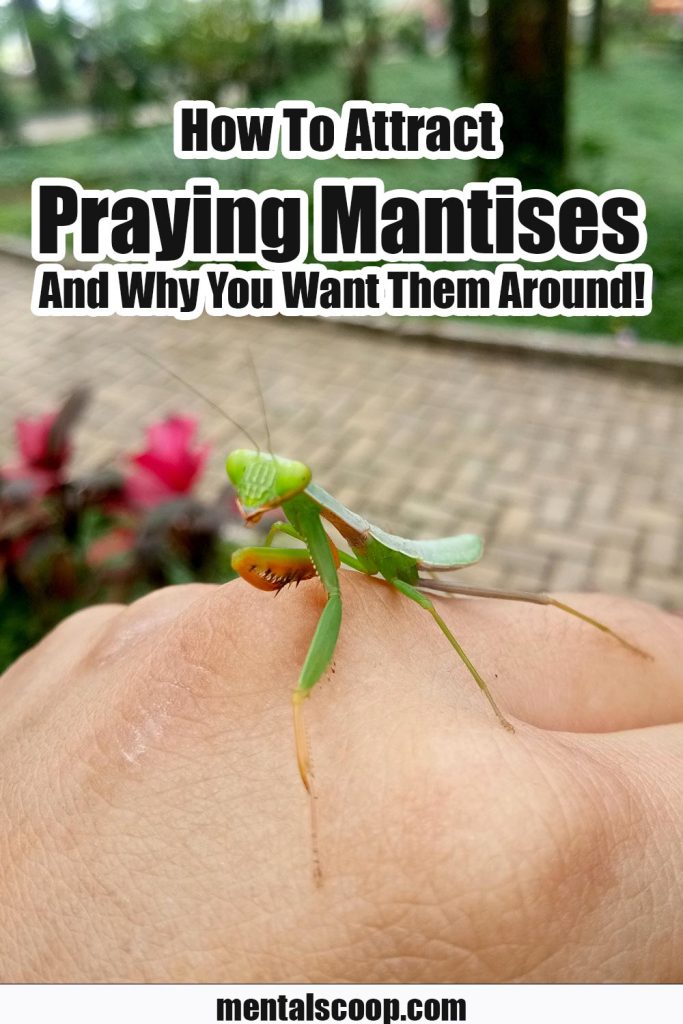How To Attract Praying Mantis And Why You Want Them Around!

Praying mantises, with their unique appearance and fascinating behavior, have captivated nature enthusiasts for centuries. These remarkable insects are not only intriguing to observe but also serve as beneficial allies in maintaining ecological balance in your garden or backyard. In this article, we will explore nine effective methods to attract praying mantises to your outdoor space and discuss the reasons why having them around can be beneficial.
Create a Native Plant Haven
Praying mantises are attracted to natural habitats abundant with native plants. By incorporating a variety of flowering plants, shrubs, and trees indigenous to your region, you can create an inviting ecosystem that provides ample food sources for mantises. Native plants often host an array of insects, which in turn attracts praying mantises to the area.
Provide Ample Shelter
Praying mantises require sheltered spaces to rest and lay their eggs. By incorporating different structures, such as tall grasses, dense vegetation, or even a small insect hotel, you can create hiding spots that encourage mantises to stay and thrive. These structures offer protection from predators and unfavorable weather conditions, making your garden an ideal mantis habitat.
Utilize Attractive Lighting
Praying mantises are attracted to light sources, particularly artificial ones. By strategically placing outdoor lighting fixtures, such as lamps or lanterns, you can create a magnetic pull for these insects. However, it’s important to use lights with caution to avoid attracting them to unsafe areas, such as roads or places where they may come into contact with harmful substances.
Minimize Pesticide Use
Pesticides not only harm pests but also negatively impact beneficial insects like praying mantises. Minimizing the use of chemical pesticides in your garden helps maintain a healthy balance of insects, ensuring a sustainable ecosystem. Embracing natural pest control methods, such as introducing predator insects or using organic repellents, will encourage mantises to visit and stay in your garden.
Provide Water Sources
Like any living creature, praying mantises require water to survive. By incorporating small water features, such as shallow birdbaths or water dishes, you can attract mantises while also providing them with a much-needed resource. Ensure that the water source is replenished regularly and kept clean to avoid the breeding of mosquitoes or other pests.
Create a Welcoming Habitat
Praying mantises are more likely to settle in environments that meet their specific needs. By offering a mix of plants at various heights, such as tall grasses, medium-sized shrubs, and low-growing plants, you create an ideal hunting ground for mantises. Additionally, leaving leaf litter and fallen branches undisturbed provides hiding places and encourages the presence of potential prey.
Avoid Excessive Light Pollution
While mantises are attracted to light sources, excessive light pollution can disrupt their natural behavior and confuse them. By minimizing artificial light pollution, such as unnecessary outdoor lighting or ensuring that lights are shielded and directed downward, you can create a more inviting environment for mantises to flourish without interfering with their natural cycles.
Introduce Suitable Prey
Praying mantises are voracious predators that feed on a variety of insects. By attracting their preferred prey, such as butterflies, moths, beetles, and other small insects, you create a food source that entices mantises to visit and remain in your garden. Planting nectar-rich flowers and allowing certain “pest” populations to exist in moderation will help maintain a steady supply of prey for the mantises.
Preserve Overwintering Sites
Praying mantises overwinter as egg cases attached to vegetation or other structures. By avoiding excessive garden cleanup and leaving certain areas undisturbed during the colder months, you provide protected spaces for mantis egg cases to survive until spring. This preservation of overwintering sites ensures the continuity of mantis populations in your garden year after year.
Why You Want Praying Mantises Around
Having praying mantises in your garden or outdoor space offers numerous benefits. First and foremost, mantises act as natural pest controllers, consuming a variety of insects that may be harmful to your plants.
They can help control populations of garden pests like aphids, flies, and caterpillars without the use of harmful chemicals. Moreover, observing these fascinating insects up close can be an educational and enjoyable experience for both children and adults alike.
Praying mantises also play a crucial role in maintaining the overall ecological balance of your garden, contributing to the natural harmony and sustainability of the ecosystem.

More interesting articles you may be interested in reading:

How To Remove A Tree Stump Painlessly
10 Vital Home Maintenance Tasks You’ll Regret If You Forget
See How Much Propane Is Left In A Tank With No Gauge
Thanks for reading and be sure to share this info with your friends using the social share buttons below.
Talking about social stuff, consider liking our Facebook page to keep up to date with our articles. Check out our other articles for more mental scoops!
